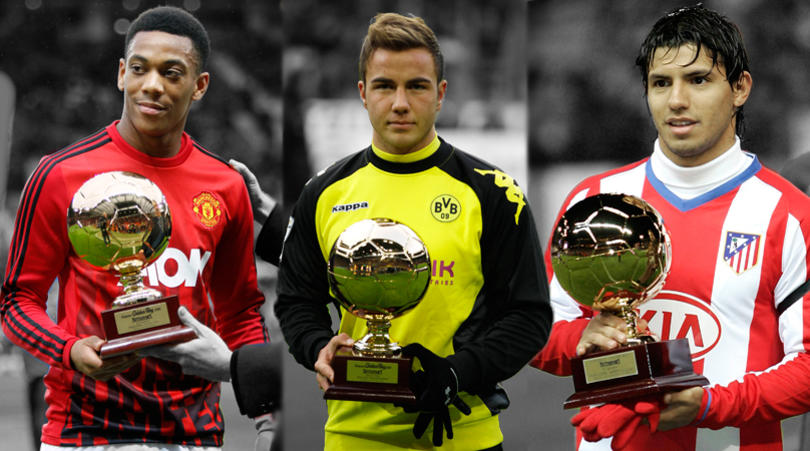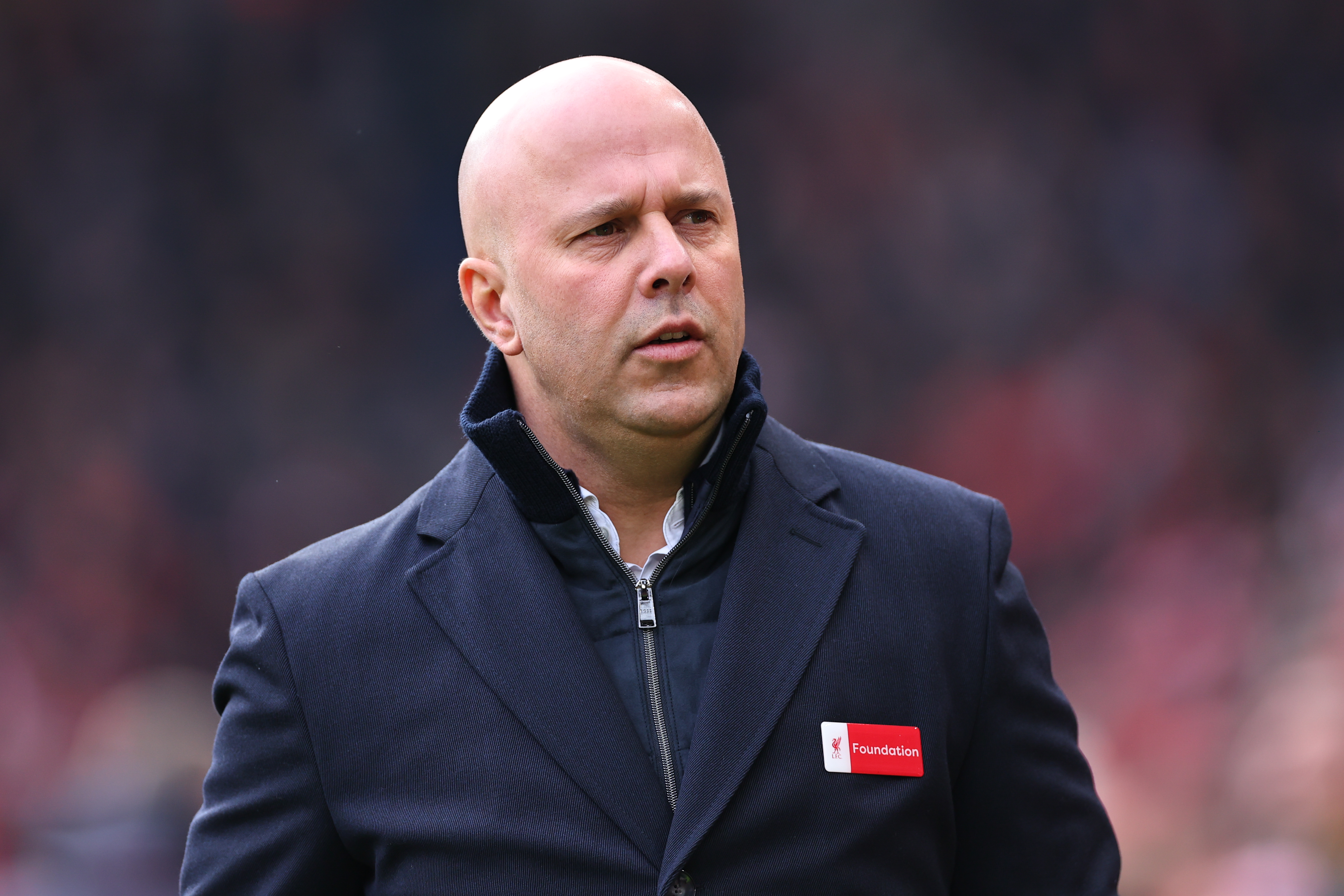16 South American starlets who came to the Premier League... and disappeared without a trace
England’s top flight has featured many a memorable star from the continent – but these aren't among them...
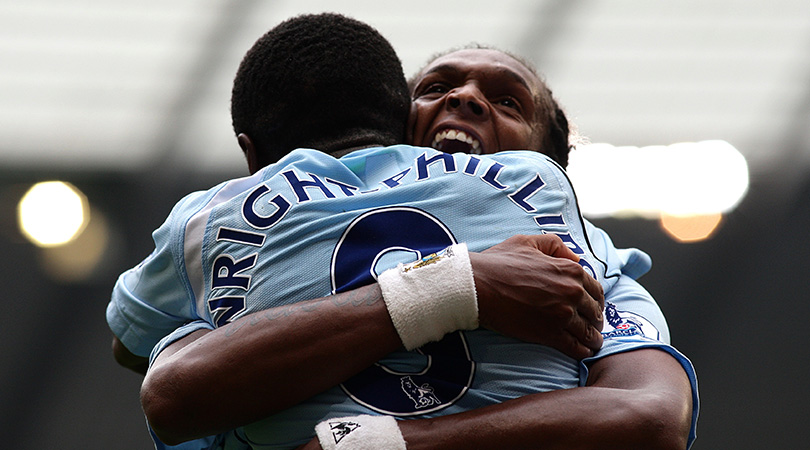
Jonathan Calleri (West Ham)
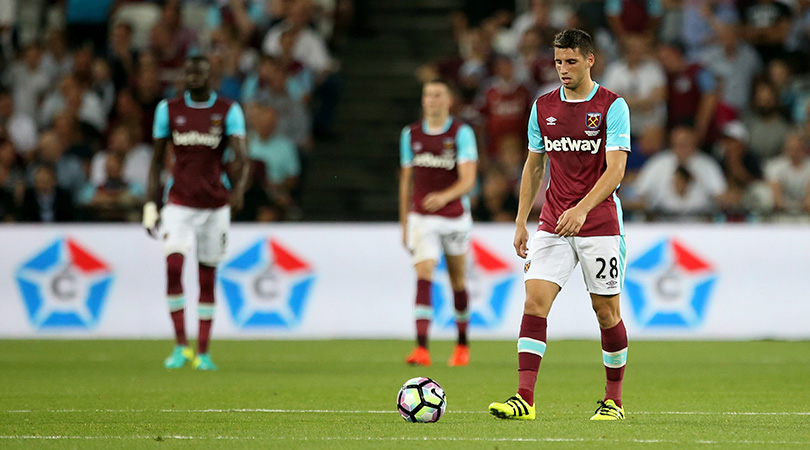
Calleri arrived at West Ham on loan from the peculiar Deportivo Maldonado, having scored 39 goals in his previous 90 club appearances around Argentina and Brazil. He’d added another for Argentina at the 2016 Olympics, and was seen as a leftfield solution to West Ham’s striker woes.
Owners David Gold and David Sullivan had splurged millions on some 40 different forwards to no avail before Calleri’s arrival – and this move proved no different.
The rough and tumble of the Premier League proved too much for Calleri, who scored just once in his first 10 appearances. He was eager to cut his loan short in January, so Carlos Tevez was enlisted to give him a pep talk. Calleri agreed to stay, but the goals failed to materialise and after eight more appearances he hot-footed away from east London.
Since then he’s popped up on loan in Spain at Las Palmas and Alaves.
Angelo Henriquez (Manchester United)
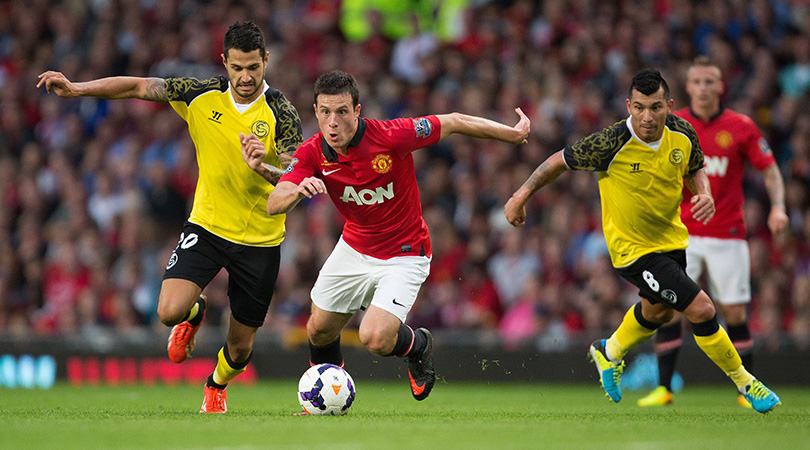
Recruited from Universidad de Chile for a bargain £4 million, Henriquez had scored 15 goals in 28 games for his hometown club. The Chilean was no Chicharito, though, lacking the same strength and poacher’s instinct that made the Mexican such a force at Old Trafford.
Get FourFourTwo Newsletter
The best features, fun and footballing quizzes, straight to your inbox every week.
Keen to toughen him up, Sir Alex Ferguson sent Henriquez out on loan to Wigan in 2012/13 – but it didn’t have the desired effect. Shorn of confidence, the youngster played just four Premier League games, scoring once in a dismal home defeat to Sunderland, and was an unused substitute in the 2013 FA Cup Final.
Another lacklustre loan at Real Zaragoza followed, before Henriquez finally found his scoring touch in Europe on loan Dinamo Zagreb, who eventually made the move permanent in 2015. Since then he’s won a Copa America with Chile and is now back at Universidad. He's still only 24.
Carlos Villanueva (Blackburn)
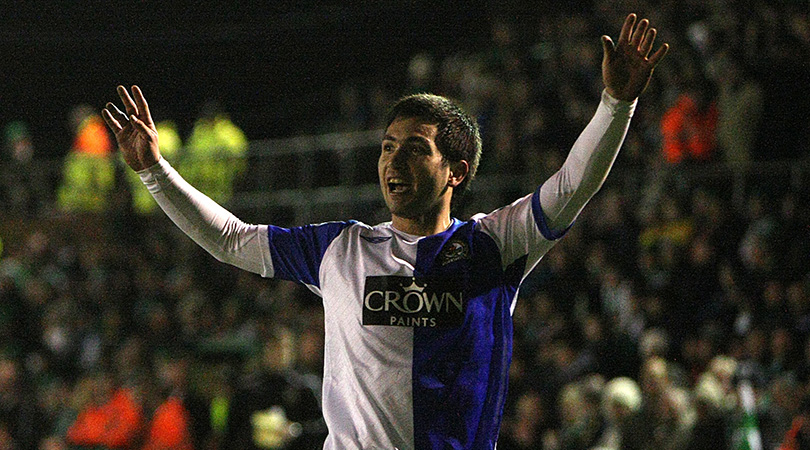
Villanueva was set to play a crucial role in Paul Ince’s plans at Blackburn. Signed from Audax Italiano on loan, he was a cultured playmaker and Chile’s reigning player of the year at the time.
The attacking midfielder would pull the strings from midfield, thought Ince, who assumed that 50 goals in 110 games at Audax suggested he had a potential gem on his hands. And it started well: a goal and an assist on his debut against Grimsby in the League Cup, but then Villanueva became the only person in the country aged over 10 (we assume) to contract chicken pox.
Forced to wait until mid-September for his Premier League debut, Villanueva eventually made his bow as a substitute against Fulham and helped set up the game’s winning goal. An assist on his first start against Newcastle put things back on track, but when Ince was sacked and replaced by the more direct Sam Allardyce, Villanueva’s days were numbered.
He left the following summer for Al Shabab in the Middle East and has since moved on to Al-Ittihad. Hmm.
Luciano Figueroa (Birmingham)
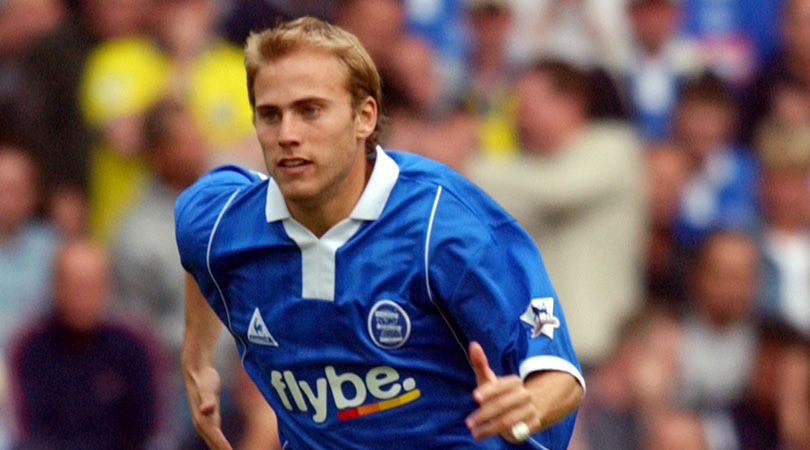
In July 2003, Birmingham ended their interest in Francis Jeffers by splashing out £2.5 million on a 22-year-old Argentine striker dubbed the next Gabriel Batistuta. In his defence, Figueroa had just finished top scorer in the Clausura with 17 goals in 19 games for Rosario Central – part of an overall haul comprising 35 in 57 games.
Despite fighting off competition from Rangers and Osasuna to sign him, Birmingham seemed hesitant to play Figueroa. In fact, he managed just one Premier League appearance at the club and another in the League Cup. Though Figueroa impressed for the reserves, manager Steve Bruce felt the striker lacked the necessary physicality and he was released after a single season.
Despite enduring a nomadic career since in Spain, Argentina, Italy, Greece, Ecuador and Malaysia, Figueroa did manage 15 caps and nine goals for Argentina, and is one of few players to feature for both Boca Juniors and River Plate. He’s now manager of Johor Darul Ta’zim, one of his former clubs, in Malaysia.
Diego Gavilan (Newcastle)
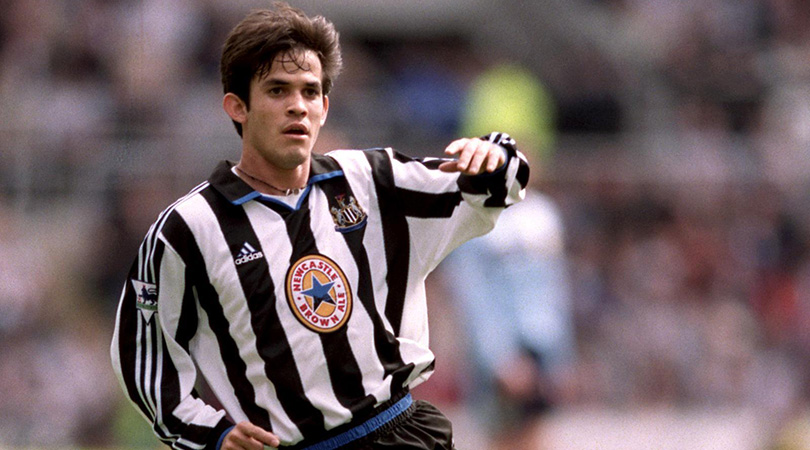
Sir Bobby Robson didn’t make many mistakes during his time at Newcastle, but the signing of Gavilan was definitely one of them. The first Paraguayan to play in the Premier League, Gavilan was just 19 when he arrived from Cerro Porteno for £2m in January 2000.
Dubbed ‘Pompero’ in Paraguay, which roughly translates as “running like the wind”, the midfielder had pace to burn but rarely used it. Despite a solid debut in the Tyne-Wear derby, Gavilan struggled for consistency and Magpies fans had to wait until April before he scored his first goal for the club.
Diminutive and ponderous on the ball, Gavilan was loaned out to Tecos, Internacional and Udinese in the hope he would adapt. Newcastle eventually cut their losses in 2004 when the winger was sold to Internacional. He was most recently with Independiente CG back in Paraguay, where he hung up his boots in 2011 aged just 30.
Juan Cobian (Sheffield Wednesday)
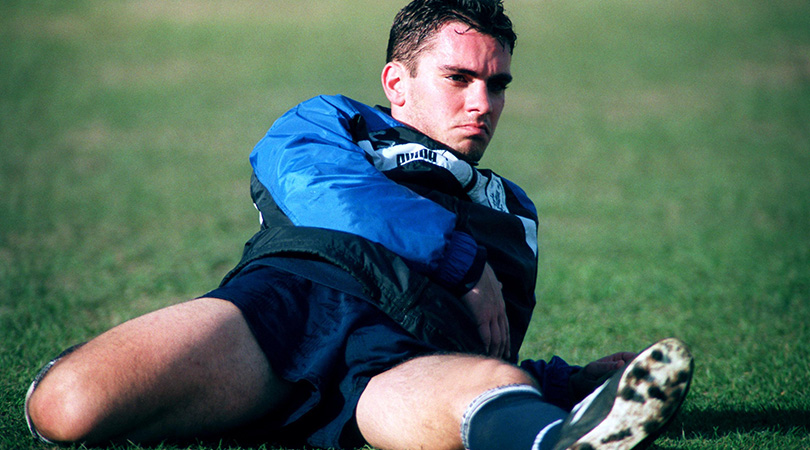
The first Argentine to play in the Premier League alongside Derby’s Horacio Carbonari (both started on the opening day), Cobian arrived at Sheffield Wednesday from Boca Juniors on a free transfer in the summer of 1998. Primarily a right-back, he started seven of Wednesday’s first eight league games.
But it was all downhill from there. A nightmare performance in a 4-0 drubbing at the hands of Middlesbrough preceded a similarly grim display in the League Cup, where his poor backpass gifted Cambridge United’s Trevor Benjamin the only goal.
He left for Charlton at the end of the season but never played for the Addicks, moving on to Aberdeen, Swindon and lowly CD Linares in Spain before returning to Argentina.
Mark Gonzalez (Liverpool)
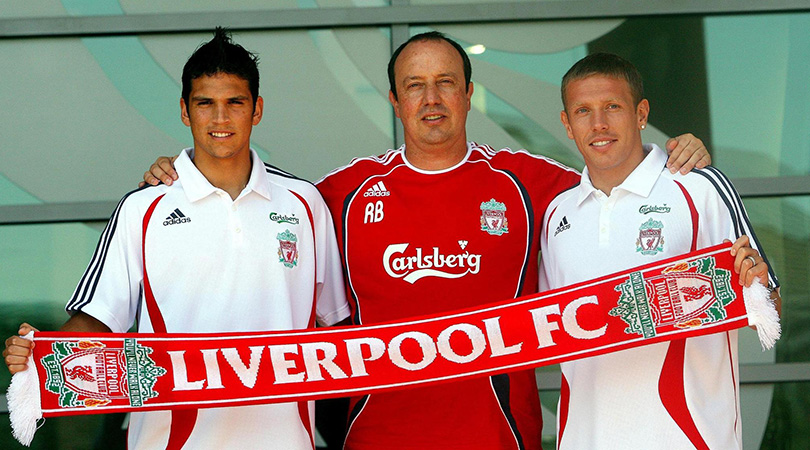
Gonzalez overcame work permit issues and a cruciate knee ligament injury to land a dream move to Liverpool from Albacete in 2006. Recruited to provide cover and competition for the injury-prone Harry Kewell, Gonzalez kicked his Liverpool career off with the winning goal in a Champions League qualifier against Maccabi Haifa.
He proved no great replacement, though, and Rafa Benitez cut his losses after just a single season (albeit one in which he made 36 appearances). Sold on to Real Betis, the South American eventually ended up at CSKA Moscow and spent five years in Russia before returning to the club he started his career with, Universidad Catolica. He’s still playing in Chile now, aged 34, for Deportes Magallanes.
Walter Del Rio (Crystal Palace)
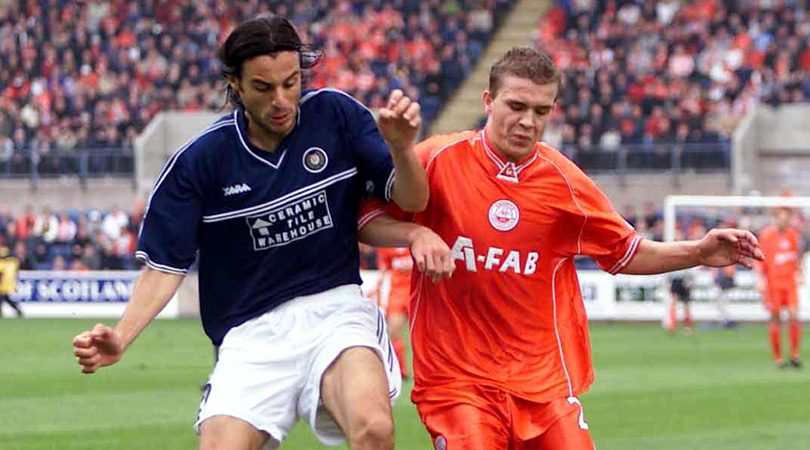
A famous bit of Terry Venables wheeler-dealing led to 22-year-old Boca Juniors defender Walter del Rio pitching up at Selhurst Park in the summer of 1998. Purchased for a paltry £187,500, Del Rio – or “Witcha” as he was known in Argentina – was considered a player with huge potential.
In a season where Palace recruited the misfiring Michele Padovano and portly Tomas Brolin, however, Del Rio distinguished himself as the club’s worst signing. The Eagles were on the end of a 4-0 mauling against Barnsley on a nightmare debut, and Del Rio never started another game for Palace.
A further two substitute appearances followed before Venables was replaced by Steve Coppell. Frozen out of the first team by March 1999, Del Rio refused the offer of a free transfer, continuing to train with the reserves. He eventually left for Dundee in July 2000, linking up with Claudio Caniggia.
Mauro Formica (Blackburn)
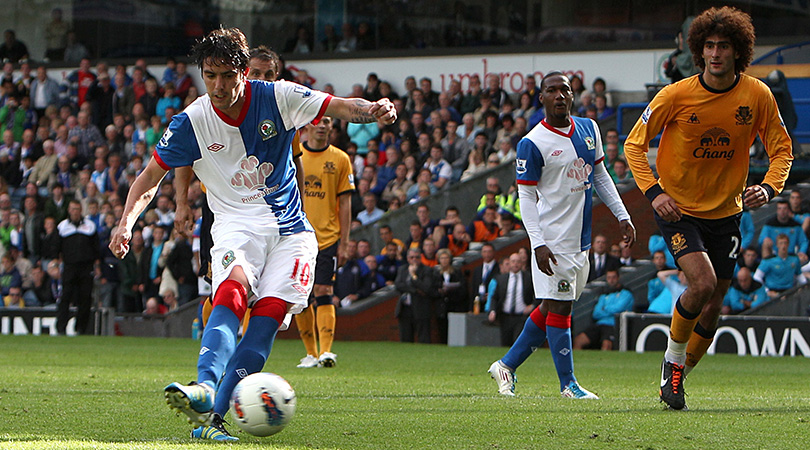
In January 2011, Blackburn were linked with an audacious move for that most mercurial of South American talents, Juan Roman Riquelme. In the end, though, Rovers fans had to make do with 22-year-old Formica.
Signed for £4 million from Newell’s Old Boys in the final few hours of the transfer window, the playmaker was talked up by new boss Steve Kean as a “young [Gabriel] Batistuta” – despite the fact he was a playmaker rather than a striker.
Though Formica didn’t play for Blackburn until the following season, he marked his Premier League debut against Wolves in August 2011 with a goal. But he wasn’t happy with life in Blackburn (really, who could blame him at that time?) and by January 2012 was already pushing for a move. Formica, now 30, stuck around long enough to see the club relegated and went on to play for Palermo, Cruz Azul and Newell’s Old Boys (again).
Jo (Manchester City)
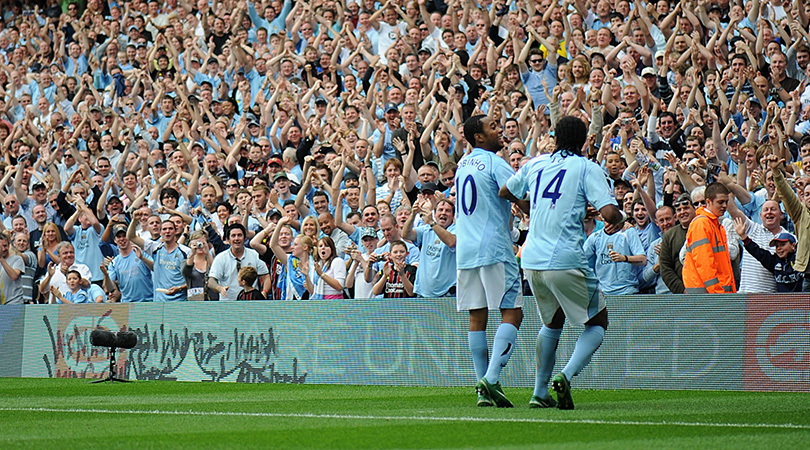
Mark Hughes’s first signing as Manchester City boss – and a then-club record purchase at £19 million – was 21-year-old Jo, who had plundered goals for fun at CSKA Moscow.
A bright start wasn’t sustained, however, and after just nine league games of 2008/09 he was loaned out to Everton. Jo fared better with the Toffees, scoring five times in 12 outings, but a second season-long loan in 2009/10 didn’t bring more of the same; an unsanctioned trip back to Brazil over the busy Christmas period put paid to a permanent deal.
Jo eventually returned to Brazil and his form picked up, so much that he was selected for the Seleção's ill-fated 2014 World Cup campaign. Stints in the UAE and China followed, before a prolific season at Corinthians earned Jo one final payday in Japan with Nagoya Grampus.
Sixto Peralta (Ipswich)
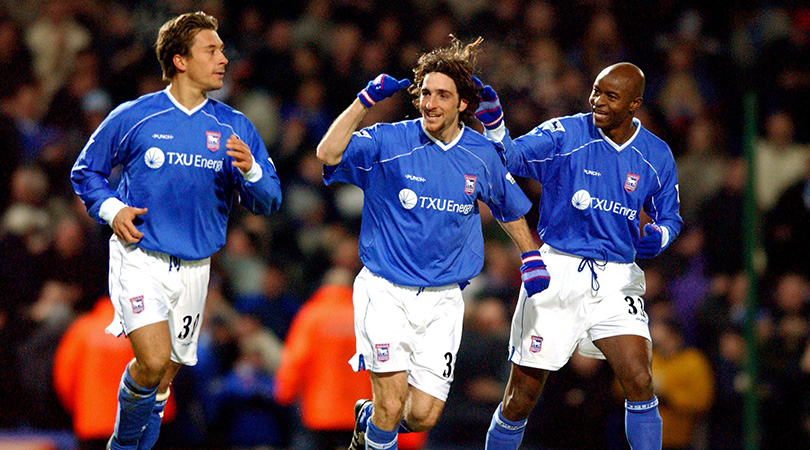
Inter Milan brought Peralta to Europe from Racing Club in 2000 after seeing the midfielder impress with Argentina at the 1999 FIFA World Youth Championship. But despite such promise, he found his route to the first team blocked by a glut of stars.
It was only when the midfielder moved to Ipswich in the 2000/01 season that his fortunes changed. Finally given a run of first-team football, Peralta bagged five goals in 29 games, but they weren’t enough to prevent the Tractor Boys from being relegated.
Peralta never got to play for Inter either, moving on for spells in Mexico and Argentina before settling in Europe with Cluj. Peralta won three league titles and three Romanian Cups with the club, eventually retiring at Chile’s Universidad de Concepcion in 2015.
Federico Arias (Southampton)
Gordon Strachan signed the 23-year-old Arias after Southampton’s overseas scout Terry Cooper watched him in action for Velez Sarsfield. Strachan was full of praise for the versatile Argentine, gushing: "He can play on either flank which will give us good balance. He looks a useful player, is very quick and hopefully he will make us stronger."
Cooper spoke in similarly glowing terms, revealing Arias’s nickname at Velez was “the Torpedo” because he was “explosive over 20 metres”. What happened next remains a mystery. Released after just six months and no first-team appearances, Arias holds the distinction of being Southampton’s worst South American signing – ahead of even Agustin Delgado.
Aris returned to Velez Sarsfield but never rediscovered his form, embarking on a nomadic career that culminated in his slide down the Argentine football pyramid.
Carlos Marinelli (Middlesbrough)
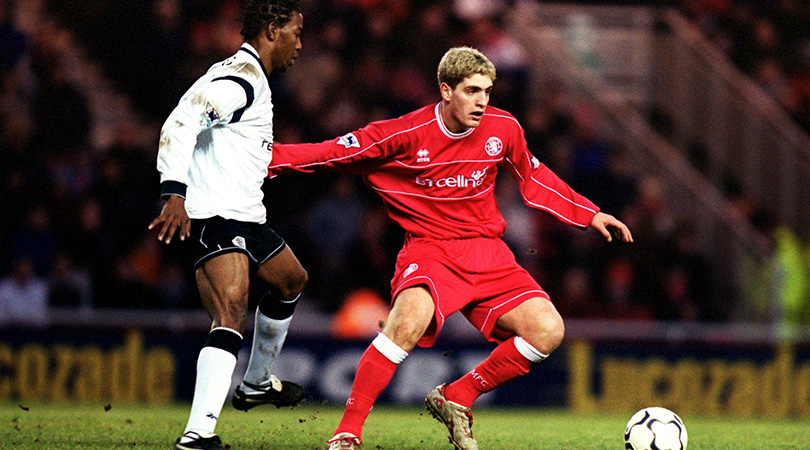
Middlesbrough paid Boca Juniors £1.5 million for the 17-year-old Marinelli in summer 1999, and the attacking midfielder was quickly dubbed “the next Diego Maradona” by UK press.
Boro fans had to wait until Boxing Day to see Marinelli in action, though, with Steve McClaren eager to ease his new player into the Premier League. His plans were scuppered the following year, however, when a series of ankle injuries restricted Marinelli to 13 appearances.
The pressure was on by the 2001/02 campaign but Marinelli started brightly, scoring his first two goals for the club in a 5-1 win over Derby. But it didn’t get any better from there. After another loss of form, the Argentine was on his way out of the Riverside.
Evidently, Marinelli was a difficult character: he lasted just three games back at Boca before a fallout with manager Carlos Bianchi led him to Racing Club. Stints in Italy, Portugal, the USA, Colombia, Argentina, Hungary and Peru followed, before the South American was forced to retire due to injuries aged just 32.
Fernando Pasquinelli (Leicester)
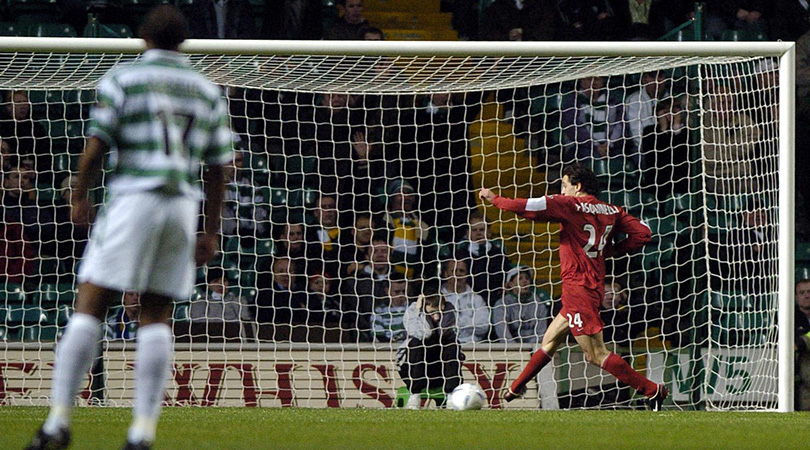
Leicester’s first Argentine was brought to the club by Martin O’Neill from Boca Juniors in 2000 as part of a loan deal that contained an option to buy the 19-year-old striker. It didn’t take long for O’Neill to decide Pasquinelli wasn’t up to scratch, though – the striker never even played for the Foxes.
He was released under Peter Taylor’s reign and returned to Boca, but still couldn’t get a game and eventually joined Temperley. His stint at Leicester hadn’t put him off the UK: Pasquinelli made a surprise return via Livingston and then Aberdeen, where he played actual games of football for both clubs.
Eventually released by the Dons following a long-term injury lay-off, Pasquinelli went off the grid and appeared sporadically for a series of South American clubs before retiring, aged 30, in 2010.
Williams Martinez (West Brom)
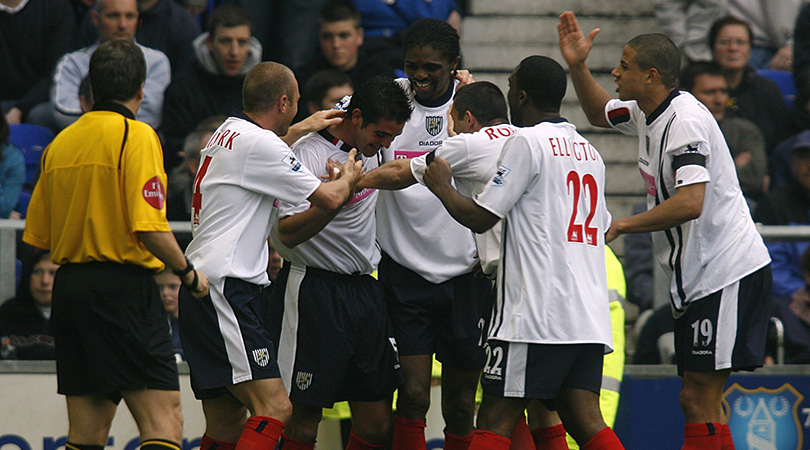
Bryan Robson brought 23-year-old defender Martinez to The Hawthorns in January 2006 on the recommendation of Uruguayan football legend Daniel Fonseca. Captain at previous club Sporting Defensor, Martinez had just earned his first call-up for Uruguay and it seemed as though West Brom were getting a bargain with the option to make his loan permanent for just £2 million.
But his first appearance couldn’t have gone much worse. Subbed on in a game against Fulham with the Baggies already 2-0 down, Martinez’s introduction didn’t have the desired impact and West Brom eventually went down 6-1. He had to wait until May for his first start, scoring to help Robson’s team establish a 2-0 lead over Everton, but then going on to gift the Toffees a late penalty which levelled the scores.
West Brom were relegated and Martinez moved on for stints in France with Reims and Valenciennes, then returning to South America where he remained for the rest of his career.
Fabian Caballero (Arsenal)
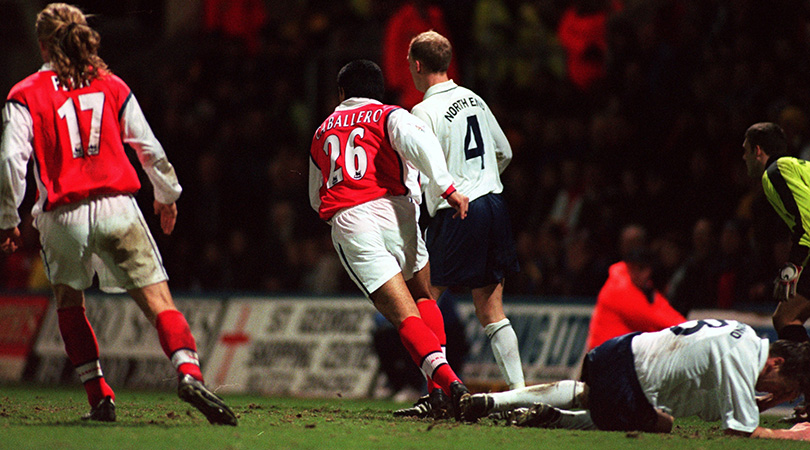
Nestor Fabian Caballero, or ‘Tyson’ as he was more affectionately known, arrived at Arsenal in October 1998 on loan from Cerro Porteno in Paraguay. He went on to make his one and only Premier League appearance for Arsenal and another in the FA Cup, where he assisted Emmanuel Petit in a 4-1 win over Preston.
Tyson fared better for Arsenal’s reserve side, though, scoring eight goals in 16 games. They weren’t enough to earn him a permanent deal, however, and the striker moved on to Sol de America.
But the Paraguayan did return to the UK with Dundee, where he scored 27 goals in 111 games before experiencing a series of short stints with (deep breath) Olimpia Asuncion, Tacuary, Daejeon Citizen, Alki, Provincial Osorno, Panachaiki, Nacional Asuncion, Municipal, Tacuary, Sportivo Ameliano and Deportivo Recoleta before retirement.
